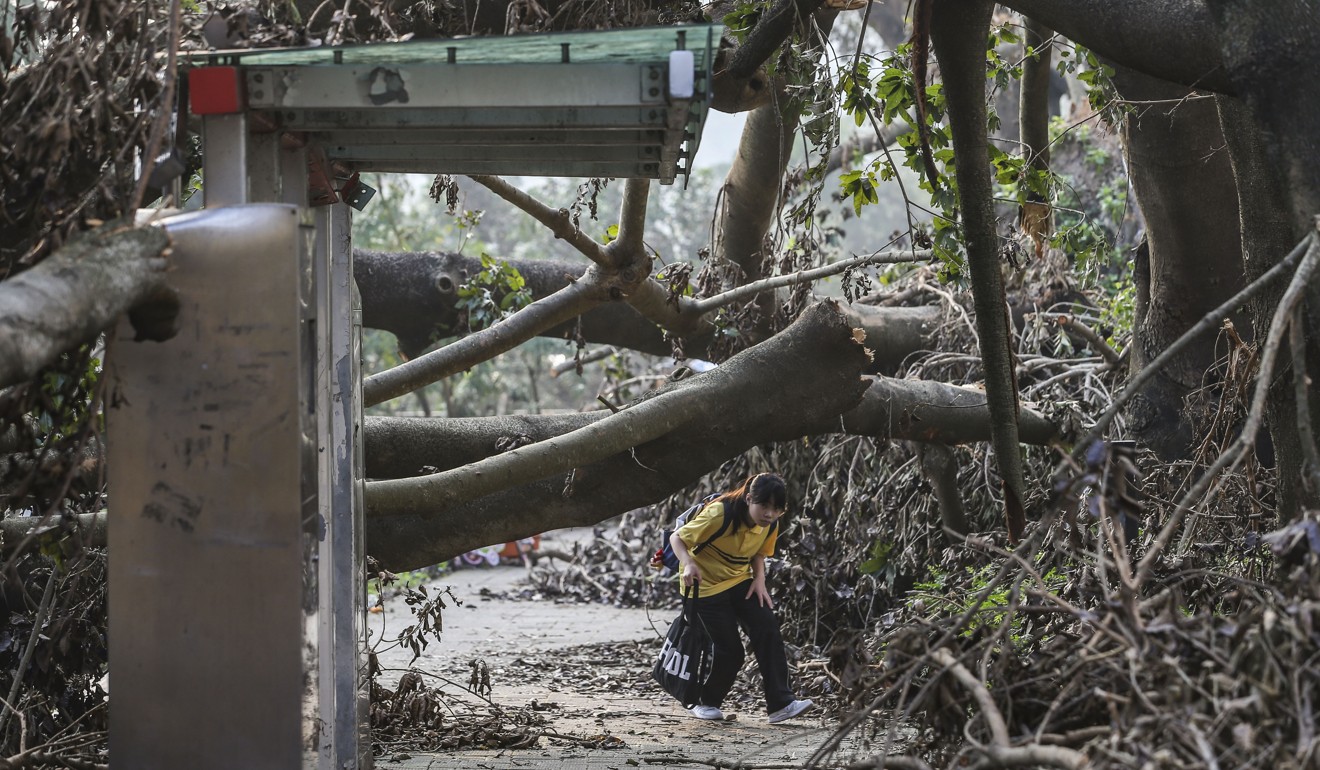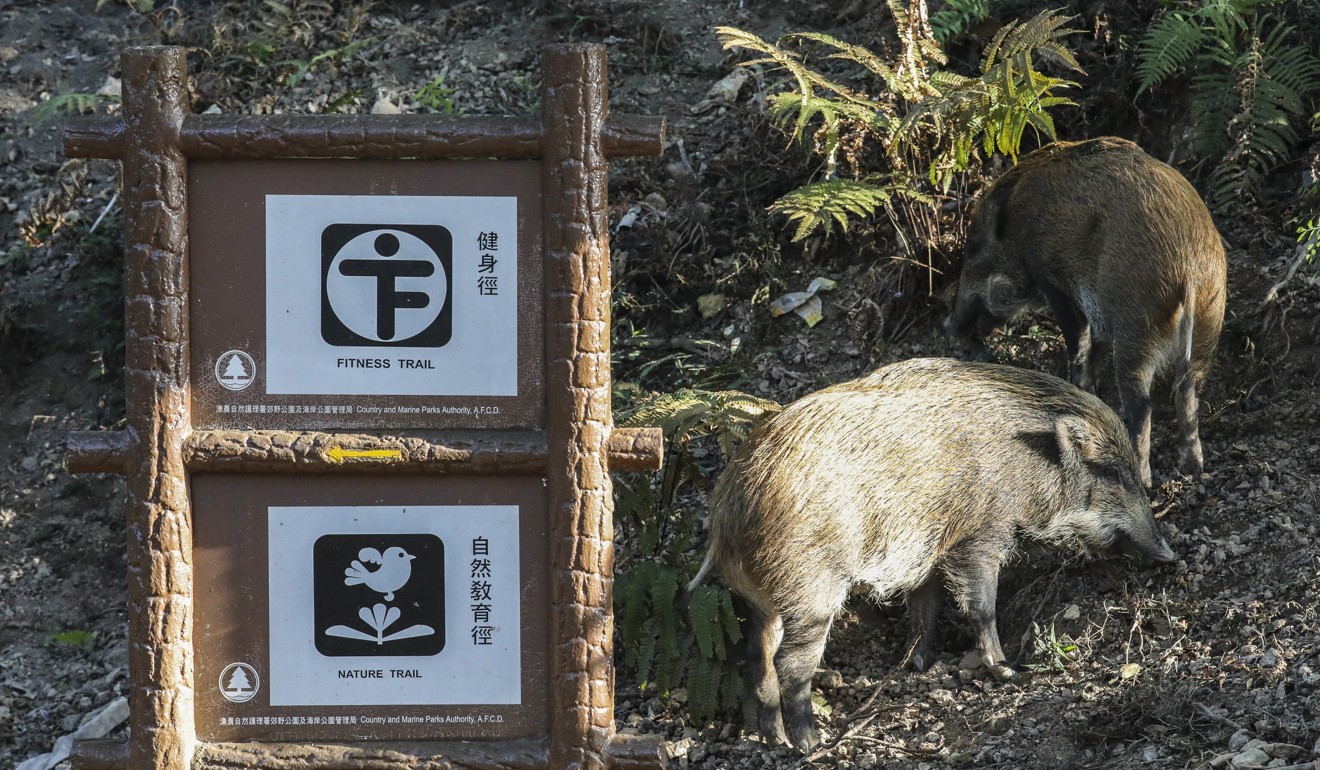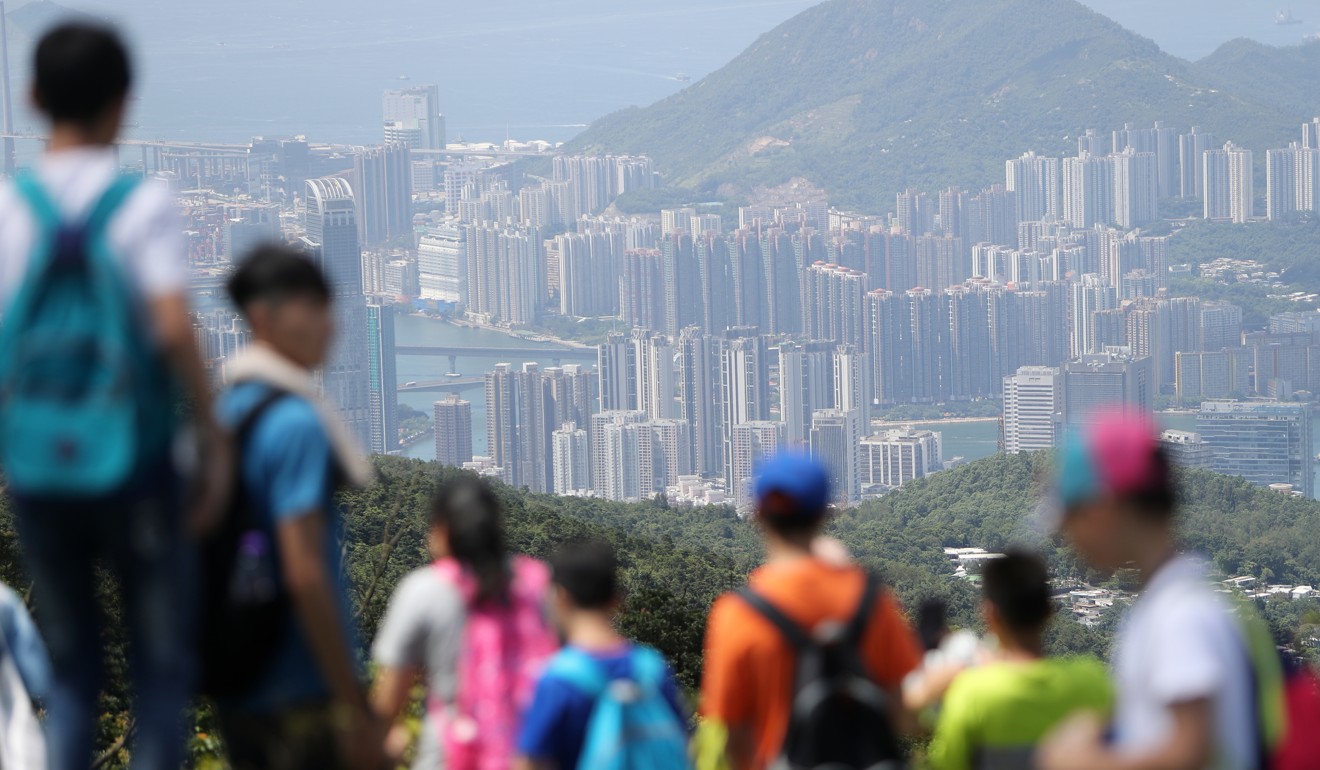
The Earth’s climate could be about to do something it hasn’t done for billions of years
- British policy report underscores the increasingly obvious – the world’s ecology is in a costly death spiral and time is running out
- Typhoon Mangkhut was a warning we ignore at our peril
Clambering along Clear Water Bay’s mountain trails yesterday, sweltering in an unseasonably hot 26 degrees Celsius, I was reminded afresh of the harm inflicted by Typhoon Mangkhut five months ago. Not just the shattered trees, but the silence, and the paucity of butterflies.
I cheered myself by recalling the astonishing capacity of nature to recover from the constant onslaught it faces here in Hong Kong. Outside my house, predatory creepers are well on the way to engulfing the wall of flotsam that was swept 40 meters onshore by Mangkhut’s storm tides.
But am I right to be cheered? A newly released report from Britain’s Institute for Public Policy Research (IPPR) brought me fast down to Earth. The report begins “This is a Crisis”. It ends “Time has nearly run out”.
Earth could warm to a climate not seen in billions of years “over the next 120 years, reversing a multimillion-year cooling trend in less than two centuries”, it said. It says we are in the “Age of Environmental Breakdown”.

For those of us scurrying around on Earth for 100 years if we are lucky, time frames like this are hard to get your brain around. But it sounds scary, and rightfully so.
Since I was born in 1950, the IPPR report reminds me that the annual number of floods worldwide has increased 15 times, extreme temperature events 20 times, and wildfires sevenfold. It notes that extreme weather events were responsible for economic losses put at US$326 billion in 2017 – hardly good news for the insurance industry worldwide, or for our insurance premiums.
Heat related ill-health and deaths are also an increasing concern: 157 million more people experienced heatwave events in 2017 than in 2000, and led to the loss of 153 billion hours of lost work. At Hong Kong’s current minimum wage of HK$34.50, that loss amounts to around HK$5.28 trillion (US$67.28 billion) – more than twice the size of Hong Kong’s GDP.
“Earth is undergoing the sixth mass extinction,” the authors write: “Up to 58,000 species are believed to be lost each year, and vertebrate populations declined by 60 per cent between 1970 and 2014.”
Ocean acidity 26 per cent higher today than in 1800, and 16 billion trees are being cut down every year, with the world’s tree population halved since the agricultural revolution. Marine “dead zones”, victim to agricultural run-off rich in phosphorus and nitrogen, now span 245,000 sq km – an area more than 200 times the size of Hong Kong.
The report tracks that 40 per cent of insect species are in decline: “At current rates, insects could potentially be extinct within a century.”

That reminded me of the study published a couple of weeks ago in the academic journal Biological Conservation, led by Francisco Sanchez-Bayo at Sydney University, which said populations of bees, butterflies, ants and beetles have plunged eight times faster than mammals, birds and reptiles in recent decades – putting in jeopardy the main food supply for birds, bats and small mammals, and the pollination of 75 per cent of crops worldwide. The WWF’s Living Planet Report puts the value of such services from nature at US$125 trillion a year.
Adding to the gloom, Prof Sanchez-Bayo says that while “good” insect populations are plummeting, “tough, adaptable generalists” like cockroaches and house flies seem to be able to thrive in the “Anthropocene” era.
The IPPR research team say this all adds up to an unprecedented challenge for us human beings: “Over the last 11,700 years [of the Holocene era], global environmental conditions have remained remarkably stable [but] this stability has now ended. Human activity has altered the functioning of key natural systems that regulate the Earth’s life support systems.”
Turning to their home economy, the authors say the UK is one of the “most nature-depleted countries in the world”, with one in seven species at risk of extinction. Noting the general vulnerability of us humans as we rely on just five animal species and 12 plant species for our most of our food supply, they recall that the UK is not self-sufficient in food, importing 48 per cent of its total food needs.
One wonders what they would say about our vulnerability here in Hong Kong. If the UK is “nature-depleted”, what does that make Hong Kong? And with virtually all of our food needs imported what then for our food security?
As for nature-depletion, Hong Kong surely provides some counter-intuitive insights. Despite the density of Hong Kong’s population, and the impact of construction in all its forms, our diversity is improbably high. How come we still have 6,000 or more wild pigs wandering our mountains and country parks, when the last wild boar in London was hunted in the 1600s? How come we have over 200 butterfly species, along with pangolin, wild deer and prodigious numbers of snake species, when the UK has perhaps 70? How come nature seems so quickly to heal the wounds we so relentlessly inflict on it? Perhaps there is a seed of optimism here.

But the wider environmental crisis is clearly not being kept at bay. The plastics that wash daily up on our beaches are a constant reminder of the invisible harm being done offshore, where most of Hong Kong’s coastal waters are now a marine desert, and the fish we eat are being brought, unsustainably, from more distant sources.
Nor are we paying much attention to the harm being wrought by climate change on our global ability to grow food. How can we reconcile a rising global population, and rising food consumption resulting from reductions in poverty, with the encroachments of “hothouse Earth”, the loss and degradation of farmland worldwide, or the loss of species diversity and the collapse of insect populations that pollinate 75 per cent of our crops?
While nature is doing a good job in quickly covering over the harm done by Typhoon Mangkhut, the reality is that this cover-up cannot be more than superficial. Real harm is being inflicted, and remains unremedied. In Hong Kong, the storm was a warning we ignore at our peril. As the IPPR research team conclude: This is indeed a crisis, and time is running out too fast for comfort.
David Dodwell researches and writes about global, regional and Hong Kong challenges from a Hong Kong point of view

